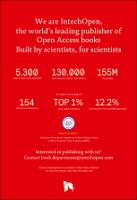Chapter A Framework for Learning System for Complex Industrial Processes
| dc.contributor.author | Rahman, Moksadur | |
| dc.contributor.author | Fentaye, Amare Desalegn | |
| dc.contributor.author | Zaccaria, Valentina | |
| dc.contributor.author | Aslanidou, Ioanna | |
| dc.contributor.author | Dahlquist, Erik | |
| dc.contributor.author | Kyprianidis, Konstantinos | |
| dc.date.accessioned | 2021-06-02T10:13:41Z | |
| dc.date.available | 2021-06-02T10:13:41Z | |
| dc.date.issued | 2021 | |
| dc.identifier | ONIX_20210602_10.5772/intechopen.92899_497 | |
| dc.identifier.uri | https://library.oapen.org/handle/20.500.12657/49383 | |
| dc.description.abstract | Due to the intense price-based global competition, rising operating cost, rapidly changing economic conditions and stringent environmental regulations, modern process and energy industries are confronting unprecedented challenges to maintain profitability. Therefore, improving the product quality and process efficiency while reducing the production cost and plant downtime are matters of utmost importance. These objectives are somewhat counteracting, and to satisfy them, optimal operation and control of the plant components are essential. Use of optimization not only improves the control and monitoring of assets, but also offers better coordination among different assets. Thus, it can lead to extensive savings in the energy and resource consumption, and consequently offer reduction in operational costs, by offering better control, diagnostics and decision support. This is one of the main driving forces behind developing new methods, tools and frameworks. In this chapter, a generic learning system architecture is presented that can be retrofitted to existing automation platforms of different industrial plants. The architecture offers flexibility and modularity, so that relevant functionalities can be selected for a specific plant on an as-needed basis. Various functionalities such as soft-sensors, outputs prediction, model adaptation, control optimization, anomaly detection, diagnostics and decision supports are discussed in detail. | |
| dc.language | English | |
| dc.subject.classification | thema EDItEUR::T Technology, Engineering, Agriculture, Industrial processes::TB Technology: general issues::TBC Engineering: general | en_US |
| dc.subject.other | learning system, soft-sensors, model predictive control, fault detection, isolation and identification, information fusion | |
| dc.title | Chapter A Framework for Learning System for Complex Industrial Processes | |
| dc.type | chapter | |
| oapen.identifier.doi | 10.5772/intechopen.92899 | |
| oapen.relation.isPublishedBy | 09f6769d-48ed-467d-b150-4cf2680656a1 | |
| oapen.relation.isFundedBy | H2020-SPIRE-2016 | |
| oapen.grant.number | 723523 | |
| oapen.grant.acronym | FUDIPO |

